Community resources
Find resources and programs available to further support patients and families.
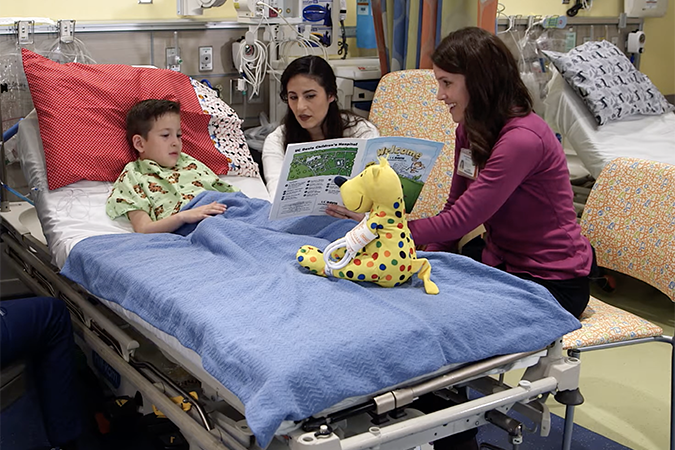
Health care experiences and hospitalization can be hard for children and families. Our team works with patients, families, and the medical staff to provide services that meet the unique psychosocial and developmental needs of each child and family.
Child Life and Creative Art Therapy services are offered in many different locations throughout UC Davis Children’s Hospital; please view the "Our Team" tab for more details on where you can find us.
Find resources and programs available to further support patients and families.
View these guidelines if you’re interested in donating to our department.
Our department offers practicum and internship opportunities for those interested in pursuing a career as a certified child life specialist.

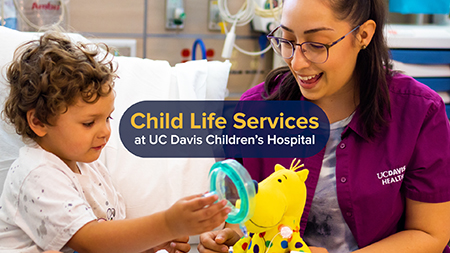
Child life specialists are experts in child development and focus on the emotional well-being of hospitalized children and their families to reduce anxiety and promote coping. Coping is supported through play, self-expressive activities and age-appropriate medical preparation and education.
Below you will find information about the services we provide.
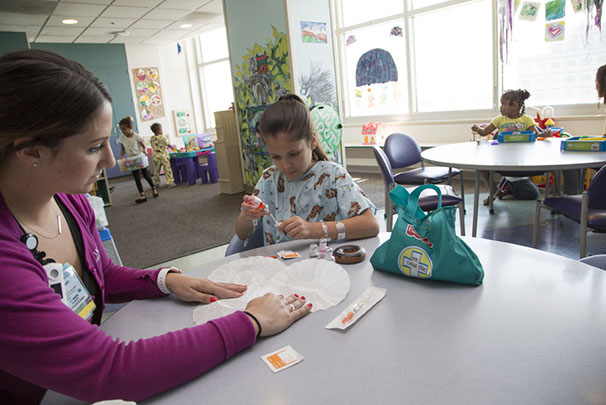
When children understand more about tests and procedures, they are better able to cope with the related stressors. Preparation involves the use of developmentally appropriate teaching tools to explain the experience. A key part of the preparation process is to work with the child to create a coping plan.
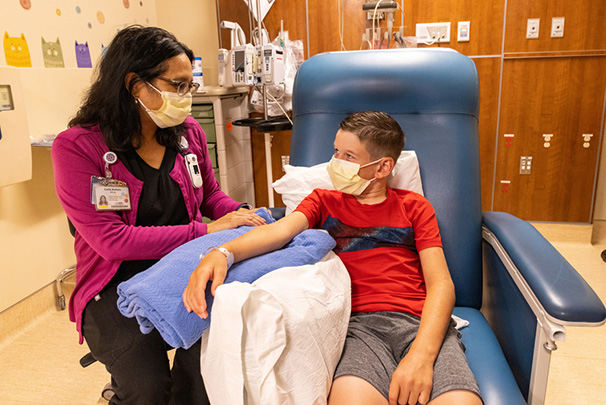
The Comfort Commitment is used for each procedure. This is a 4-step process: Ask, Share, Plan, and Do. Through partnering with children and families in this process, we are able to create individualized coping plans to decrease pain and anxiety.
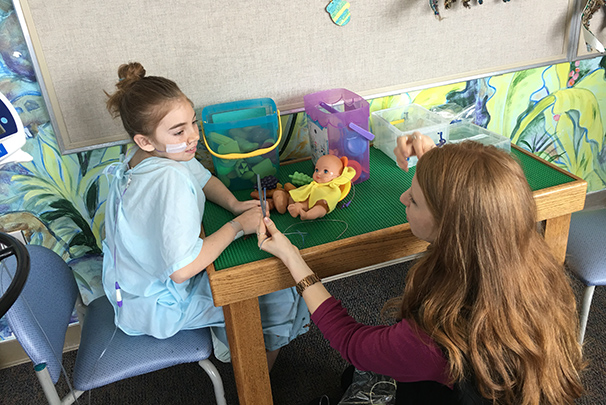
We use medical kits and supplies in a play-based way to help children learn more about experiences they may have during hospitalization. This also gives children a sense of control and helps them process feelings.
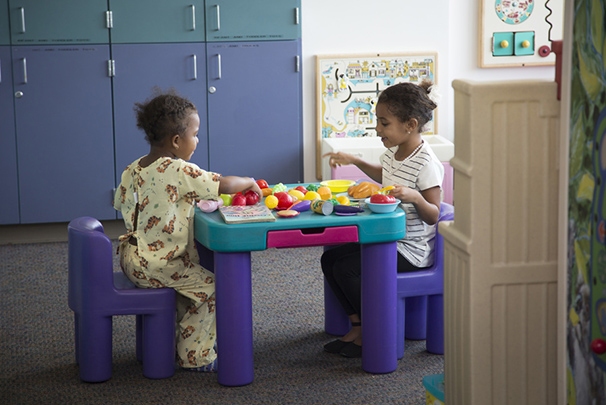
Play normalizes the hospital environment and provides an important recreational outlet. Through play, children realize that they can master challenges, and this helps to reinforce a sense of hope. Play also helps children express feelings and make sense of their world.
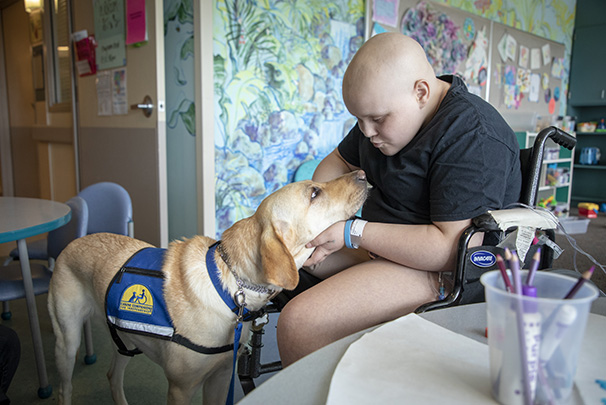
We support children as they express fears, concerns, and frustrations that arise from hospitalization. We work to normalize feelings, validate what is expressed, address misconceptions, and advocate on behalf of each child and family.
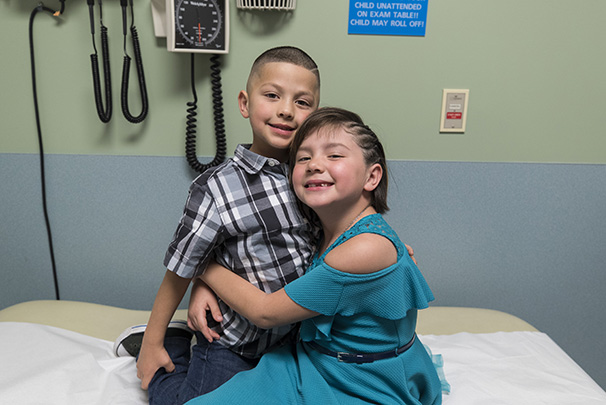
We support siblings through working to bridge the gap between home and hospital. Additionally, we provide education and preparation about a sibling's medical situation, and support visits to the hospital, as appropriate.

We are trained to support families as they navigate change and loss. We share information, resources, and strategies to support children during these situations.
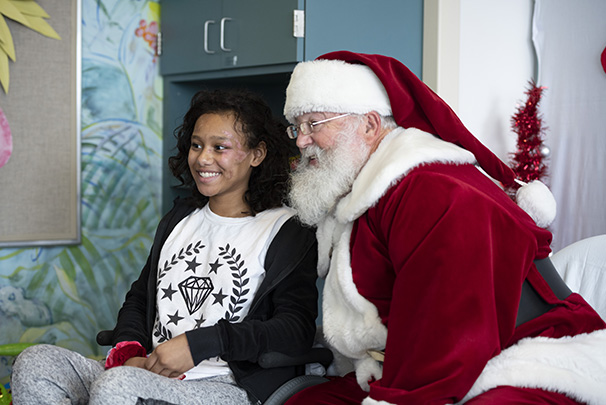
We facilitate special events and activities for patients and families. These events help to soften the hospital experience and create ways for families to continue traditions.
Art therapy is a non-verbal form of therapy that involves the creative process to improve the physical, mental, and emotional well-being of patients and families. You do not need to have artistic training to participate in and receive benefits from art therapy. The art therapists at UC Davis Children’s Hospital provide individual and group art therapy sessions for children of all ages and developmental levels. These opportunities promote self-expression, communication and coping through art.
Music therapy combines music interventions and techniques to help patients accomplish individualized goals with the support of a board-certified music therapist. Patients do not have to know how to play an instrument in order to benefit from music therapy. The music therapists at UC Davis Children’s Hospital collaborate directly with the patient’s care team to provide appropriate music therapy services throughout the patient’s hospitalization.
School is an important part of every child’s routine. While children are in the hospital, they are encouraged to continue their education and achieve their academic goals through the hospital school program.
As members of the patient care team, our two full-time credentialed teachers collaborate with the patient’s classroom and/or home instruction teacher to develop an education plan for the child’s hospital stay.
Educational sessions for K-12 patients are provided in a small group setting or at the patient’s bedside, as medically appropriate. A parent or guardian's signature is required to enroll.

Having play spaces within the hospital encourages children to PLAY! Play supports development and coping. Within most pediatric units, there are designated play spaces to promote creativity and socialization outside of their hospital room. These playrooms are staffed by child life department team members, along with school and community volunteers. Patients on isolation precaution are unable to go to playrooms, however, most play and craft items can be delivered to the patient's room. As well, patients on isolation can participate in group programming virtually.
(The hours and availability of each playroom are varied. For the most up-to-date information, please ask your bedside nurse or child life specialist.)
Located on Davis 7, the playroom is filled with games, books, arts, crafts, and is also where much of our group programming happens.

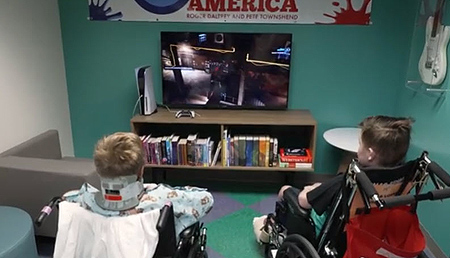
Located in the middle of Davis 7, this room is meant for teens to connect, play games, read, and create! Ask a bedside nurse or child life specialist if your teenager would like to go to the teen lounge.
This playroom is a space where patients can go to participate in activities, groups, or choose items for their room. There are mobile gaming systems and DVD players that can be provided at bedside.
Designated for critical patients and their families, the Davis 10 playroom provides a space for respite and play. The playroom contains games, books, arts and crafts, and developmentally appropriate toys.

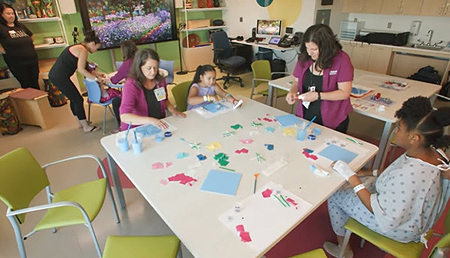
This space provides specially curated programs that address each child’s entire well-being, including their mental, emotional, physical and spiritual needs. This will include therapeutic play, art therapy, music therapy and academic enrichment, all designed to give children courage and strength through their hospitalization.
Parents and families can contact the Child Life and Creative Arts Therapy Department to find out more about our services.
4301 X St.
Sacramento, CA 95817